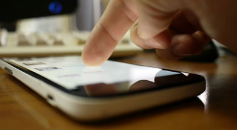iPhones are known for their reliability and user-friendly interface; however, like any technology, they can experience issues from time to time. Here’s a list of common iPhone problems and some easy solutions to help you troubleshoot and resolve them quickly.
1. iPhone Won’t Charge
Problem: Your iPhone is plugged in but not charging.
Solution:
- Check the Cable and Adapter: Inspect for any visible damage. Try using a different charging cable or wall adapter to see if the issue persists.
- Clean the Lightning Port: Use a toothpick or a soft brush to gently remove lint or debris from the Lightning port.
- Restart Your iPhone: A simple restart can sometimes resolve charging problems.
2. Slow Performance
Problem: Your iPhone is lagging or running slow.
Solution:
- Close Background Apps: Double-tap the Home button (or swipe up on iPhones without a Home button) and swipe up on apps to close them.
- Clear Storage: Go to Settings > General > iPhone Storage to see what’s consuming space. Delete unnecessary apps, photos, or files.
- Update iOS: Ensure you are using the latest software version by going to Settings > General > Software Update.
3. Wi-Fi Connectivity Issues
Problem: Your iPhone won’t connect to Wi-Fi or keeps dropping the connection.
Solution:
- Toggle Wi-Fi Off and On: Go to Settings > Wi-Fi, turn it off and then back on.
- Forget Wi-Fi Network: Tap on the network, select “Forget This Network,” and then reconnect by entering the password again.
- Reset Network Settings: Go to Settings > General > Reset > Reset Network Settings, which will clear saved Wi-Fi networks and passwords, so be prepared to re-enter those.
4. Crashing Apps
Problem: Apps keep crashing or freezing on your iPhone.
Solution:
- Update the App: Go to the App Store, tap on your profile picture, and scroll down to update any apps showing an available update.
- Reinstall the App: Delete the app and then download it again to ensure you have the latest version.
- Restart the iPhone: Restarting the device can help resolve temporary app glitches.
5. Overheating
Problem: Your iPhone feels unusually hot to the touch.
Solution:
- Remove the Case: Take off any case that may be causing excess heat.
- Limit Intensive Usage: Avoid resource-intensive tasks like gaming or using GPS when the phone is overheating.
- Turn Off Background App Refresh: Go to Settings > General > Background App Refresh to limit which apps refresh when not in use.
6. Cannot Send or Receive Text Messages
Problem: You’re unable to send or receive SMS or iMessages.
Solution:
- Check Signal: Ensure you have cellular connectivity. If you’re in a low-signal area, move to another location.
- Reset Network Settings: As mentioned earlier, this can also help fix messaging issues.
- Check iMessage Settings: Go to Settings > Messages and make sure iMessage is turned on.
7. Face ID or Touch ID Not Working
Problem: Face ID or Touch ID is not responding.
Solution:
- Clean the Sensors: Ensure the Face ID or Touch ID sensors are clean and unobstructed by dirt or debris.
- Re-register Your Fingerprint or Face: Go to Settings > Face ID & Passcode or Touch ID & Passcode to reset your stored fingerprints or facial recognition.
- Restart Your iPhone: A standard restart might resolve sensor problems.
8. No Sound or Low Volume
Problem: You cannot hear sounds or notifications on your iPhone.
Solution:
- Check Volume Settings: Use the volume buttons to adjust the sound level and ensure that the mute switch isn’t on.
- Check Bluetooth Connection: If your iPhone is connected to a Bluetooth device, you may not hear sound through the phone. Disconnect or turn off Bluetooth to test.
- Restart the Device: Sometimes, a quick restart can fix sound issues.
9. Apple ID Issues
Problem: Trouble signing in to your Apple ID or iCloud.
Solution:
- Check Apple System Status: Visit the Apple System Status page to see if there are ongoing issues with Apple services.
- Reset Password: If you’re having trouble signing in, reset your password through the Apple ID website or directly on your device in Settings.
- Enable Two-Factor Authentication: If you’re using two-factor authentication, ensure you have access to the trusted device or phone number on file.
